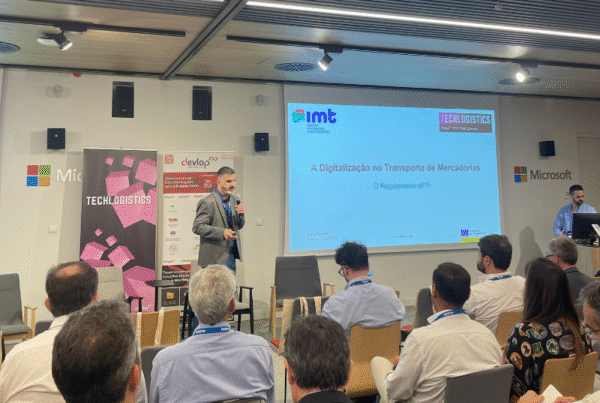On October 24 2024, industry leaders and public sector experts gathered at the BVL Supply Chain CX Congress in Berlin to discuss the future of freight transport in light of the upcoming adoption of the eFTI Regulation, set to be implemented in early 2027.
The congress featured a panel discussion titled “Is Your Future Digital? Discuss with Us!”, moderated by Christian Lüpges, Senior Consultant at AlbrechtConsult and eFTI4EU Project partner. The panel included Markus Sandbrink (CIO, Rhenus Group), Dieter Sellner (Head of Digital Businesses, DB Schenker), Bernd Krekeler (Vice President, Federal Logistics and Mobility Office – BALM), and Birgit Faßbender (Deputy Head of Division, Federal Ministry for Digital and Transport).
The panel discussed on how Germany is developing both the legal and technical frameworks essential for eFTI adoption, with initiatives such as the Fraunhofer IML eFTI Platform serving as key steps toward ensuring the logistics sector is ready to integrate the system on schedule.
The conversation then shifted to the role of economic operators like Rhenus and DB Schenker. While eFTI compliance will be mandatory for public authorities, its adoption remains voluntary for private sector companies. Representatives from these firms expressed enthusiasm about the benefits of eFTI, emphasizing that it provides an opportunity to extend their internal digitalization efforts into the business-to-administration (B2A) space. They highlighted that eFTI’s Europe-wide legal framework will enable a significant reduction in costs associated with supplying the legally required data, with estimates suggesting potential savings of up to 50%.
The anticipated benefits of eFTI were also a key point of discussion. The new system is expected to streamline logistics processes, enhance efficiency, and reduce the administrative burden across the industry. For authorities, such as the Federal Logistics and Mobility Office (BALM), eFTI offers the means to digitize inspection processes, enhance EU-wide cooperation, and improve data sharing between stakeholders. The use of a digital network is anticipated to minimize transport disruptions, ensuring faster and more precise inspections.
In conclusion, the panel at the BVL Supply Chain CX Congress highlighted that eFTI represents a critical shift towards digitalization in freight transport, promising to modernize communication and simplify operations across the logistics landscape in Europe.
Pictures of the session were kindly provided by BVL Supply Chain CX.









